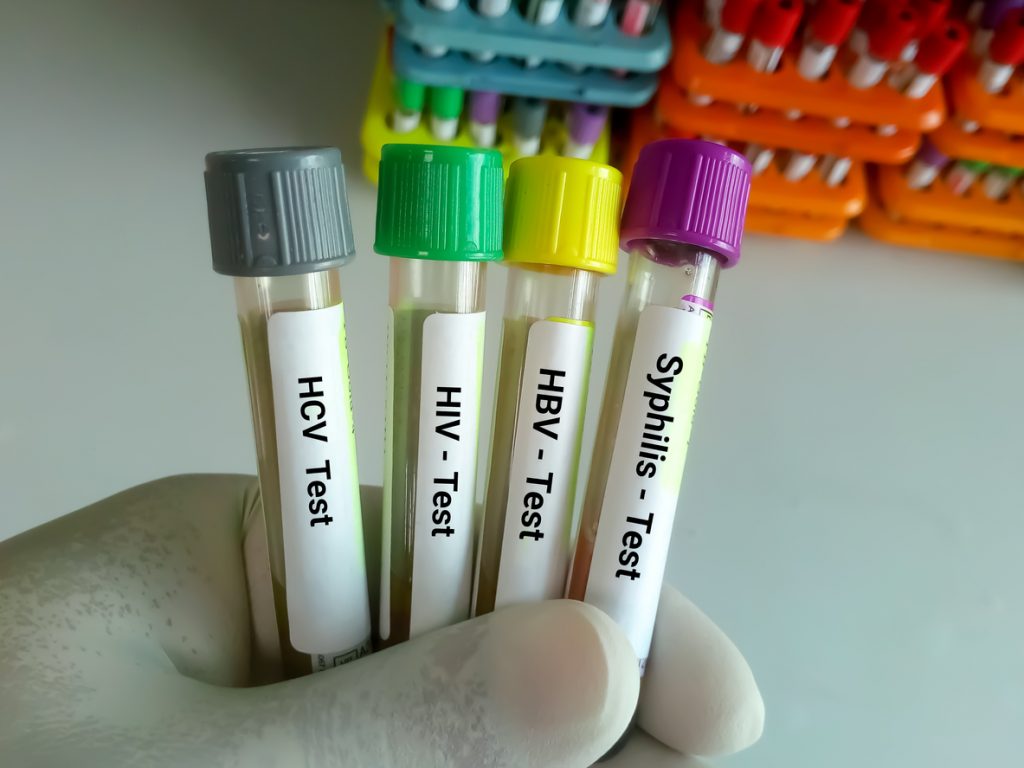7 common sexually transmitted infections (STIs) in Australia
A sexually transmitted infection (STI) is any infection you contract through sexual activity. One in six Australians has had a notable STI in their lifetime, and knowing what the risks are – and how to prevent them – is crucial for maintaining good sexual health.
Here are seven common sexually transmitted diseases in Australia …

1. Chlamydia
Chlamydia is the most frequently-reported infectious disease in Australia. It can be difficult to recognise the symptoms, especially considering 75% of women and 50% of men show no early symptoms at all, but left untreated, chlamydia can cause fertility issues in both men and women. Thankfully, infection is easily detectable via a non-invasive test, and treatable. Speak to a doctor about the right treatment for you.
2. Herpes
Genital herpes is a virus infecting up to one in eight Australians, caused by the herpes simplex virus (HSV). Genital herpes can cause outbreaks of painful blisters or sores on the genitals and anus, which can recur throughout a person’s life once they are infected. While there is currently no cure for genital herpes, symptoms are manageable and you can help to prevent transmission between partners. If you are experiencing symptoms, you should speak to a doctor to find out the right treatment for you.
3. Syphilis
Syphilis is spread through skin-to-skin contact during sex, particularly oral, vaginal and anal sex. Symptoms can vary depending on which stage of the disease a person is experiencing, and left untreated it can damage every area of the body, including the heart and brain.
4. Hepatitis B
Hepatitis B is an infection of the liver which is spread through body fluids in many ways, including sexual contact. Complications can include increased risk of liver cancer and cirrhosis (scarring of the liver).
5. Hepatitis C
Hepatitis C is also a liver infection, spread by bodily fluids (primarily blood). While the most common situation for infection in Australia is needle-sharing, some sexual activities, particularly those which include blood-on-blood contact (such as unprotected anal sex) can also transmit the virus. Symptoms can include nausea, fatigue, jaundice and fever, but many do not experience symptoms until liver damage has occured. Medical treatment for Hepatitis C is very effective. You should speak to a doctor about the right treatment for you.

6. HIV
The human immunodeficiency virus (HIV) is transmitted through some bodily fluids, and you can become infected through certain unprotected sexual activities. If untreated, the virus attacks a person’s immune system, eventually rendering it unable to fight off infection. The late stage of this virus is known as acquired immunodeficiency syndrome (AIDS). Current treatments available mean most people who receive medication and management with early diagnosis can experience near-normal life expectancy and minimal symptoms.
7. HPV and genital warts
There are more than 100 variations of the human papillomavirus (HPV) and over 40 of them are passed through sexual contact. It can affect your genitals, throat and mouth and while many infections show no symptoms, some can lead to the development of genital warts and certain cancers, including cervical and throat cancer.
If you are experiencing symptoms, you should speak to a doctor to find out the right treatment for you. You can request a telehealth consultation with one of our Australian-registered doctors from anywhere in Australia, seven days a week.
To speak with an InstantScripts Doctor:
Request a ConsultationIf you have run out of your script:
Request a ScriptBek Day is a writer and journalist with over 15 years of experience in the health and lifestyle space.
© InstantScripts
Level 8 / 637 Flinders St.,
Docklands VIC 3008

